Mental Health Books
Explore mental health tools and techniques, learn about psychology, and process your own personal experiences.
November 4, 2021
Mental health is something that concerns everyone—especially during the current pandemic. Even in 2019, the National Institute of Mental Health estimated that nearly one in five U.S. adults (that’s 51.5 million people!) live with a mental illness (source).
To help you explore mental health tools and techniques, learn about psychology, and process your own personal experiences, we’ve gathered together a collection of mental health books on a variety of subjects.
In this list:
- Caring for Your Mental Health
- Family Mental Health
- Anxiety
- Mindfulness
- Habits and Addiction
- OCD
- PTSD
- Depression
- Bipolar Disorder
- Schizophrenia
- Holistic Mental Health
Mental Health Resources
Substance Abuse and Mental Health Services Administration
Find help, treatment, and information on substance abuse and mental health services.
Department of Mental Health and Addiction Services
Services for mental health and addiction.
Find a Treatment Center
Find a therapy treatment center or program.
National Suicide Prevention Lifeline
Free and confidential emotional support to people in suicidal crisis or emotional distress 24 hours a day, 7 days a week.
Who to Call
| Berlin Crisis Hotline | 860-747-8719 |
| National Helpline | 1-800-662-4357 |
| National Suicide Prevention Lifeline | 1-800-273-8255 |
| National Sexual Assault Hotline | 1-800-799-7233 |
| National Domestic Violence Hotline | 1-800-799-7233 |
| Substance Abuse / Mental Health Helpline | 1‑877‑726‑4727 |
| Addiction Help | 1-800-563-4086 |
Caring For Your Mental Health
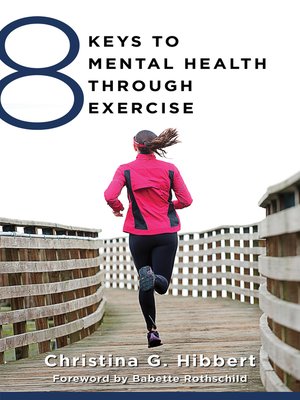
8 Keys to Mental Health Through Exercise
Christina G. Hibbert
Citing studies that link routine exercise to the alleviation of stress and anxiety, this guide shares step-by-step strategies for sticking to fitness goals and maintaining an exercise program specifically designed to bolster mental health.
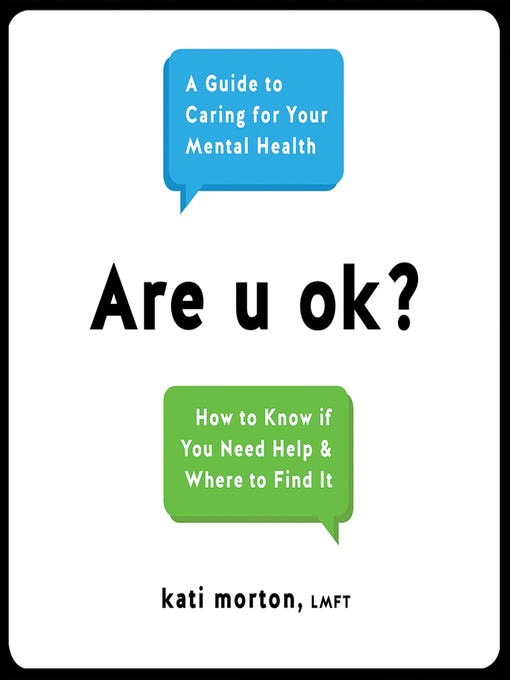
Are U Ok?
A Guide to Caring for Your Mental Health: How to Know if You Need Help & Where to Find It
Kati Morton
The licensed family therapist and YouTube personality clarifies the difference between mental health and mental illness, answering common questions to reduce stigmas while offering advice on how to pursue beneficial therapy.
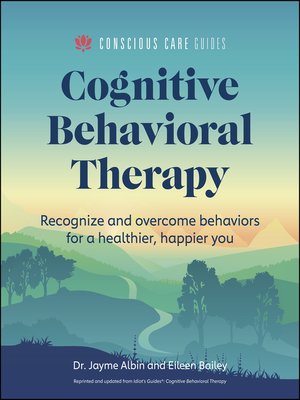
Cognitive Behavioral Therapy
Recognize and Overcome Behaviors for a Healthier, Happier You
Jayme Albin, Eileen Bailey
Cognitive Behavioral Therapy (CBT) is an approach that addresses dysfunctional emotions and negative behaviors through goal setting and various coping techniques, such as meditation, visualization, relaxation, mindfulness, and more. Cognitive Behavioral Therapy helps readers learn how to recognize negative thought patterns or obsessive behaviors, and then teaches how to employ various simple, yet effective techniques to overcome those obsessive and destructive behaviors.
Cognitive Behavioral Therapy Made Simple
10 Strategies for Managing Anxiety, Depression, Anger, Panic, and Worry
Seth J. Gillihan
Get lasting relief from anger, panic, stress, and other mood-related conditions by applying the principles of cognitive behavioral therapy to your daily life.
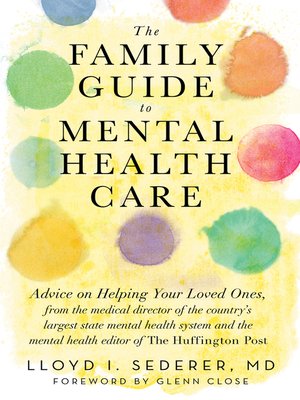
The Family Guide to Mental Health Care
Lloyd I. Sederer
This resource for those dealing with a family member’s mental illness provides information on medications, medical privacy laws, depression, anxiety, bipolar illness and eating disorders and includes a checklist of questions to ask at a doctor’s visit.
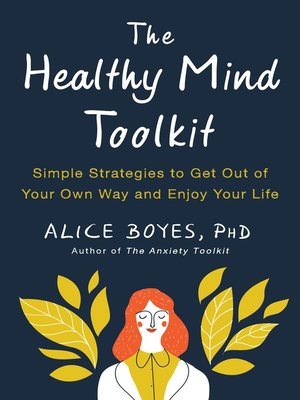
The Healthy Mind Toolkit
Simple Strategies to Get Out of Your Own Way and Enjoy Your Life
Alice Boyes
The author of The Anxiety Toolkit presents an empowering guide to overcoming self-defeating behaviors, using cutting-edge clinical and cognitive-behavioral concepts and tools to address self-harming habits ranging from rumination and envy to imposter syndrome, risk aversion and over- or under-valuing external things.
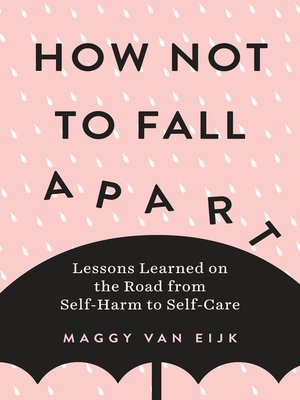
How Not to Fall Apart
Lessons Learned on the Road From Self-Harm to Self-Care
Maggy van Eijk
How Not to Fall Apart is a book about what it’s like to live with anxiety and depression, panic attacks, self-harm and self-loathing—and it’s also a hopeful roadmap written by someone who’s been there and is still finding her way.
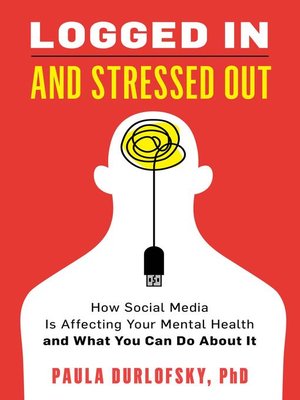
Logged in and Stressed Out
How Social Media is Affecting Your Mental Health and What You Can Do About It
Paula Durlofsky
Logged In and Stressed Out teaches readers to feel happier and more confident by examining the ways in which social media is negatively affecting their lives and determining how they can develop healthier online habits.
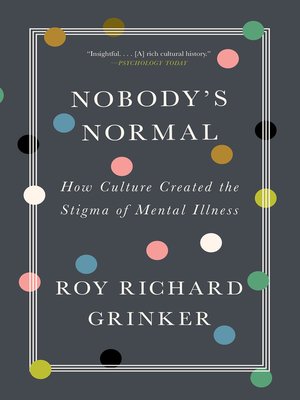
Nobody’s Normal
How Culture Created the Stigma of Mental Illness
Roy Richard Grinker
The author of Unstrange Minds presents a compassionate history of evolving attitudes toward mental illness and the ongoing fight to end related stigmas, sharing the story of his own family’s four-generation involvement in psychiatry.
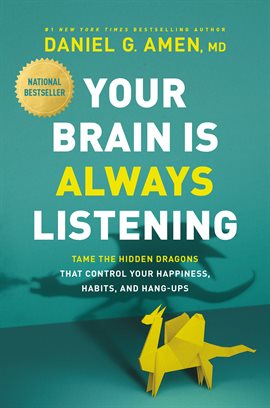
Your Brain is Always Listening
Tame the Hidden Dragons That Control Your Happiness, Habits, and Hang-Ups
Daniel G. Amen
The Brain Warrior’s Way podcaster and best-selling author of The End of Mental Illness presents a metaphorical guide to recognizing and managing strong emotions to avoid self-sabotage, overcome unhealthy behaviors and promote more fulfilling relationships.
Family Mental Health
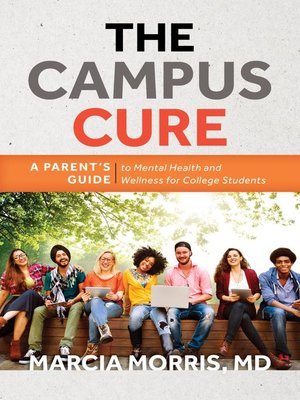
The Campus Cure
A Parent’s Guide to Mental Health and Wellness for College Students
Marcia Morris
Most mental illnesses start to arise in the later teen years and early twenties, making college-age young adults a vulnerable population. Here, Marcia Morris looks at the most common mental health issues facing this age group and what parents can do to recognize symptoms, get treatment, and support their children through these challenging years.
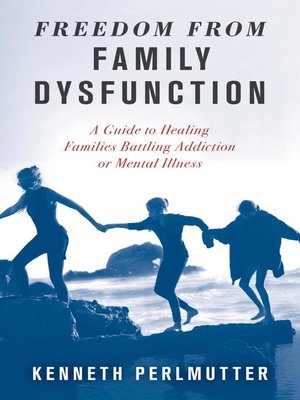
Freedom From Family Dysfunction
A Guide to Healing Families Battling Addiction or Mental Illness
Kenneth Perlmutter
Freedom from Family Dysfunction provides a healing solution for people caught in the chaos of a dysfunctional family struggling with the addiction or mental illness of one of its members. Using vivid portrayals of the pain and powerlessness, readers are provided a step-by-step method to promote health in their systems and heal themselves.
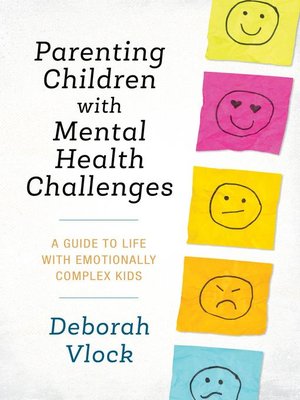
Parenting Children With Mental Health Challenges
A Guide to Life With Emotionally Complex Kids
Deborah Vlock
Written by a mother, expressly for other parents, this work supports parents as they help their kids manage life with mental illness. It offers insight into the various life hurdles every mom or dad must guide their children over—but which loom higher and more frightening when a child’s emotional disorder is thrown into the mix.
When Your Child Has a Chronic Medical Illness
A Guide for the Parenting Journey
Frank J. Sileo, Carol S. Potter
Written by leading mental health professionals, this warm and accessible parenting book for children with chronic illnesses offers clear, practical guidance for all aspects of the journey.
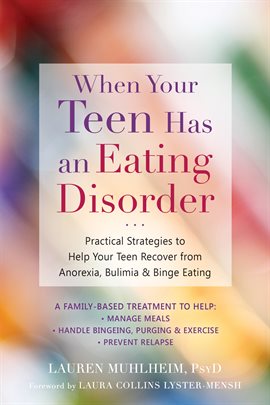
When Your Teen Has an Eating Disorder
Practical Strategies to Help Your Teen Recover From Anorexia, Bulimia & Binge Eating
Lauren Muhlheim
Counsels readers on how to help their teen recover from eating disorders using a family-based treatment approach that helps with meal management, binge eating, and relapses.
Anxiety
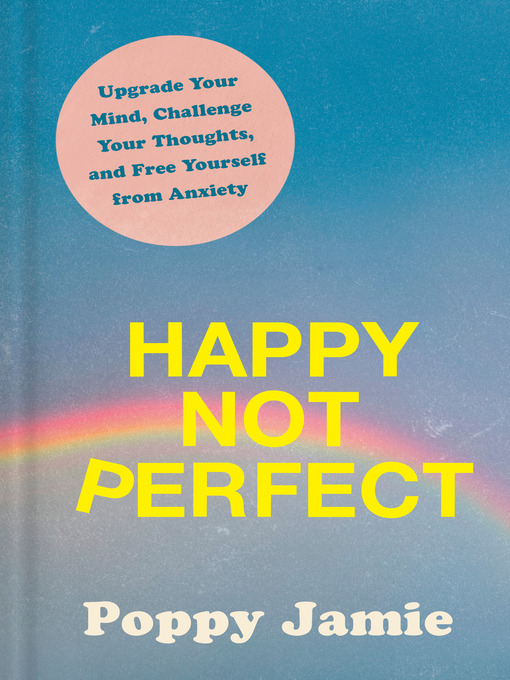
Happy Not Perfect
Upgrade Your Mind, Challenge Your Thoughts, and Free Yourself From Anxiety
Poppy Jamie
An entrepreneur and influencer in mental health and mindfulness social media describes how you can create new neural pathways in your brain to upgrade your headspace and leave behind thoughts of failure, patterns of avoidance, and fears of unworthiness.
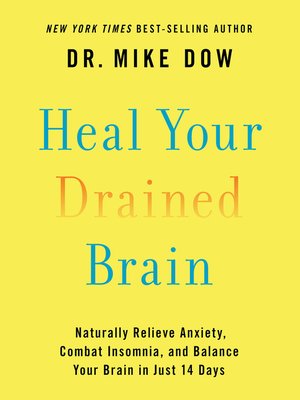
Heal Your Drained Brain
Naturally Relieve Anxiety, Combat Insomnia, and Balance Your Brain in Just 14 Days
Mike Dow
Offers a two-week plan designed to help readers combat anxiety, insomnia, exhaustion and other symptoms of a “drained brain,” with clinically-proven methods that include nutrition, cognitive behavior tools, supplements, breathing techniques, self-hypnosis, mindfulness, and exercise.
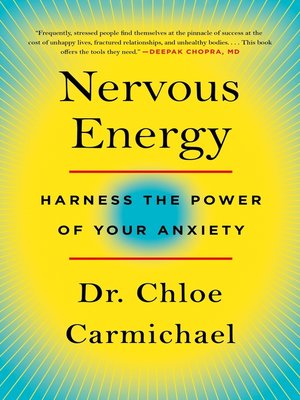
Nervous Energy
Harness the Power of Your Anxiety
Chloe Carmichael
Nervous Energy is a a roadmap for high achievers to harness restlessness, roadblocks, and distractions into a productive drive towards personal and professional fulfillment.
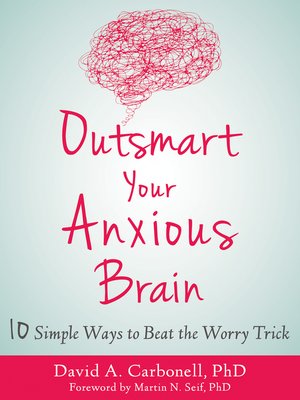
Outsmart Your Anxious Brain
10 Simple Ways to Beat the Worry Trick
David A. Carbonell
Drawing on cutting-edge psychology, this on-the-go guide offers 10 of the most powerful strategies to outsmart worry and overcome anxiety, fear and panic—all of which get in the way of us living our best lives.
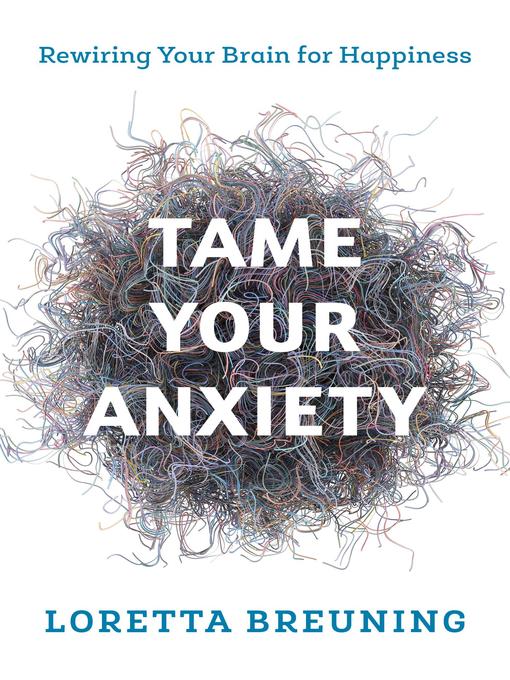
Tame Your Anxiety
Rewiring Your Brain for Happiness
Loretta Graziano Breuning
Learning to calm anxiety is a difficult task after years of responding to your brain’s warning signs for threats. But understanding the mechanisms that launch you into anxious states will help you train your brain to make new connections, new paths to awareness and calm. Tame Your Anxiety shows you how.
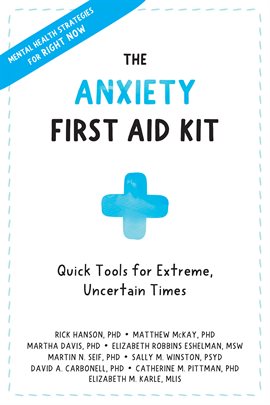
The Anxiety First Aid Kit
Quick Tools for Extreme, Uncertain Times
Rick Hanson, Matthew McKay, Martha Davis, Elizabeth Robbins Eshelman
Offers readers a quick, in-the-moment relief, not psychological jargon, when anxiety and stress feel too intense to handle.
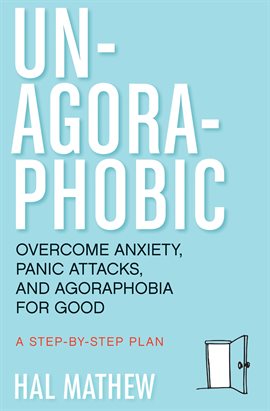
Un-Agoraphobic
Overcome Anxiety, Panic Attacks, and Agoraphobia for Good: a Step-By-Step Plan
Hal Mathew
Offers a self-care plan for overcoming agoraphobia and panic attacks that includes writing practices, visualization techniques, cooking and eating routines, and survival tips, as well as advice for loved ones.
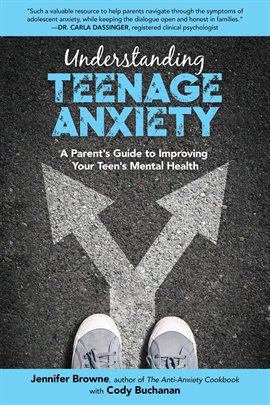
Understanding Teenage Anxiety
A Parent’s Guide to Improving Your Teen’s Mental Health
Jennifer Browne, Cody Buchanan
This book is a product of a combination of three very different perspectives: those of the anxious teen, the parent, and the therapist. We need to understand what we’ve created in terms of our current society to gain proper insight on why we’re seeing increasingly rising levels of anxiety in our teenagers. Topics include: Physical and Emotional Symptoms of Anxiety, Teens and Self-Harm, Anxiety and Gut Health, Sports: Concussions and Anxiety, Natural Ways to Help Your Teen Cope.
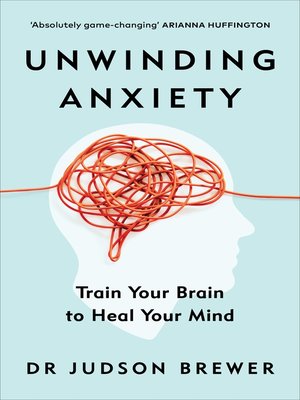
Unwinding Anxiety
New Science Shows How to Break the Cycles of Worry and Fear to Heal Your Mind
Judson Brewer
Presents a step-by-step plan to break the cycle of worry and fear that drives anxiety and addictive habits through the use of brain-based techniques accessible to anyone.
Mindfulness
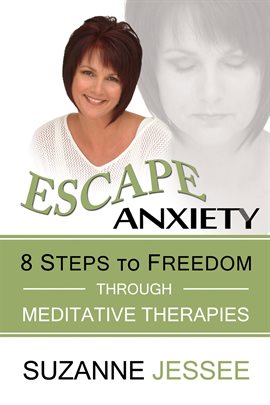
Escape Anxiety
8 Steps to Freedom Through Meditative Therapies
Suzanne Jessee
Presents the author’s eight-step program for the treatment of anxiety disorders, which includes mindfulness meditation, relaxation techniques, guided imagery, physical exercise, hypnotherapy, and cognitive behavioral therapy.
Good Morning, I Love You
Mindfulness + Self-Compassion Practices to Rewire Your Brain for Calm, Clarity + Joy
Shauna Shapiro
A clinical psychologist and internationally recognized expert in mindfulness and self-compassion demonstrates how self-compassionate thoughts alleviate anxiety, boost creative thinking and enlarge our sense of belonging and purpose.
The Here and Now Habit
How Mindfulness Can Help You Break Unhealthy Habits Once and for All
Hugh G. Byrne
Almost everyone has a bad habit—or two, or three. But some bad habits, such as habitual drinking, emotional overeating, self-criticism, chronic worrying, or even spending too much time in front of the TV can take a toll on our health and happiness. The Here-and-Now Habit provides powerful practices based in mindfulness and neuroscience to help readers rewire their brain and finally break the bad habits that are holding them back from fully experiencing life.
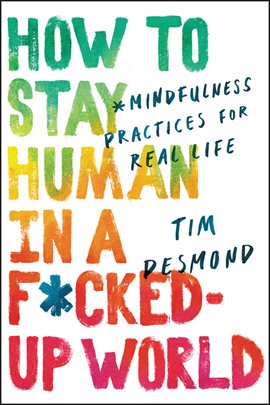
How to Stay Human in a F*cked-Up World
Mindfulness Practices for Real Life
Tim Desmond
An esteemed Buddhist scholar and lecturer on Psychology at Yale Medical School presents the first mindfulness practice designed for surviving the sometimes-miserable world we live in, with advice, strategies and guidance to feel more connected, joyful and present today.
Mindful Games
Sharing Mindfulness and Meditation With Children, Teens, and Families
Susan Kaiser Greenland
A practical and playful guide for cultivating mindfulness in kids, with 50 simple games to develop attention and focus, and identify and regulate emotions.
Mindfulness for Insomnia
A Four-Week Guided Program to Relax Your Body, Calm Your Mind, and Get the Sleep You Need
Catherine Polan Orzech, William H. Moorcroft
Break the cycle of anxious thinking and rumination that are at the root of insomnia. In this much-needed guide, a trained mindfulness expert teams up with a behavioral sleep specialist to present evidence-based meditations in an innovative four-week protocol clinically demonstrated to address the emotional stresses and anxieties that lie at the root of sleep issues. Following this guide, readers will learn to unwind their mind, relax their body, feel less tense, and finally get the sleep they need.
The Need to Please
Mindfulness Skills to Gain Freedom From People Pleasing & Approval Seeking
Micki Fine
A leading mindfulness expert and psychotherapist provides compassionate, mindfulness-based techniques that will help chronic people-pleasers address and overcome their fears of failure, inappropriate self-sacrificing, loss of personal identity, and voracious need of approval.
Radical Compassion
Learning to Love Yourself and Your World With the Practice of RAIN
Tara Brach
Recognize. Allow. Investigate. Nurture. RAIN meditation is a easy-to-learn program that can help practitioners loosen the grip of difficult emotions and limiting beliefs. Brach shares reflections and practices that, over time, can help you feel feeling of unworthiness and teach you to trust your own innate strength and goodness.
Habits and Addiction
The Anatomy of Addiction
What Science and Research Tell Us About the True Causes, Best Preventive Techniques, and Most Successful Treatments
Akikur Mohammad
An award-winning addiction psychiatrist presents layman explanations of current recommendations about the causes, prevention and treatment of addiction, outlining actionable, evidence-based approaches and how to pursue them while avoiding ineffective rehab clinics.
Clearing the Haze
Helping Families Face Teen Addiction
Christian Thurstone, Christine Tatum
Clearing the Haze shows parents the warning signs of teen addiction, and offers information about prevention methods and treatment options. Offering firsthand accounts from former addicts, parents, and professionals, this work highlights the problems of teen addiction and provides guidance for those affected.
The Craving Mind
From Cigarettes to Smartphones to Love—Why We Get Hooked and How We Can Break Bad Habits
Judson Brewer
A leading neuroscientist and pioneer in the study of mindfulness explains why addictions are so tenacious and how we can learn to conquer them. We are all vulnerable to addiction. Whether it’s a compulsion to constantly check social media, binge eating, smoking, excessive drinking, or any other behaviors, we may find ourselves uncontrollably repeating.
Enough!
A Buddhist Approach to Finding Release From Addictive Patterns
Chönyi Taylor
By fusing the essence of Buddhism with Western psychology, the author provides practical exercises, simple meditations and inspiring stories, all with the aim of helping readers identify the triggers for their addictive behaviors so that they can finally put a stop to their destructive actions.
The Thirteenth Step
Addiction in the Age of Brain Science
Markus Heilig
A leading physician scientist explains why, despite major advances in our understanding of addiction, treatment continues to be ineffective—even harmful—and how we can achieve better outcomes.
Unhooked
How to Quit Anything
Frederick Woolverton, Susan Shapiro
A specialist in treating addictions and a former patient outline a method of controlling any kind of addiction—including substance abuse and other compulsive behaviors that mask emotional pain—by understanding the underlying pain.
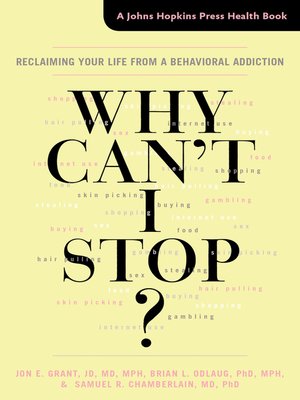
Why Can’t I Stop?
Reclaiming Your Life From a Behavioral Addiction
Jon E. Grant, Brian L. Odlaug, Samuel R. Chamberlain
Why Can’t I Stop? is for anyone who has a behavioral addiction, as well as their supportive families and friends. Examining seven of the most common and serious addictions—gambling, sex, stealing, internet use, shopping and buying, hair pulling and skin picking, and food—the authors bring together cutting-edge research to describe behavioral addiction, its causes, and how it can be diagnosed and treated.
OCD
Because We Are Bad
OCD and a Girl Lost in Thought
Lily Bailey
As a child, Lily knew she was bad. By the age of 13, she had killed someone with a thought, spread untold disease, and spied on her friends. Only by performing a series of secret routines could she correct her wrongdoing. But it was never enough. She had a severe case of Obsessive Compulsive Disorder, and it ruled her life. A startling true story.
Can’t Just Stop
An Investigation of Compulsions
Sharon Begley
Examines the science behind both mild and extreme compulsive behavior, using case studies to understand its deeper meaning and reveal the truth about human compulsion.
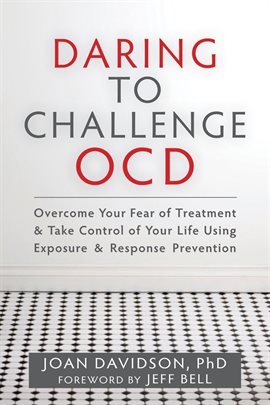
Daring to Challenge OCD
Overcome Your Fear of Treatment & Take Control of Your Life Using Exposure & Response Prevention
Joan Davidson
Offers an overview of exposure and response prevention therapy for obsessive-compulsive disorder, as well as guidance for readers who may be reluctant to seek help due to fears and misconceptions about the therapy.
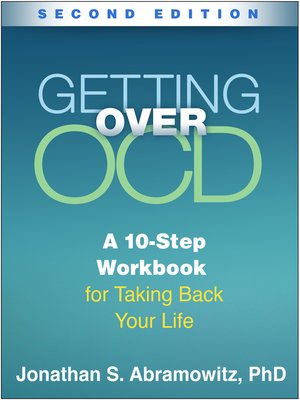
Getting Over OCD
A 10-Step Workbook for Taking Back Your Life
Jonathan S. Abramowitz
Tens of thousands of readers are living freer, happier lives thanks to the clinically proven strategies in this book. Now thoroughly updated based on the latest science, the workbook helps OCD sufferers use the powerful techniques of cognitive-behavioral therapy (CBT)—the most effective treatment for the disorder—to achieve lasting recovery.
The Man Who Couldn’t Stop
OCD and the True Story of a Life Lost in Thought
David Adam
Drawing on the latest research on the brain, as well as accounts of patients and their treatments, an accomplished science writer shares his twenty-year battle with obsessive-compulsive disorder and his attempt to understand the condition and his experiences.
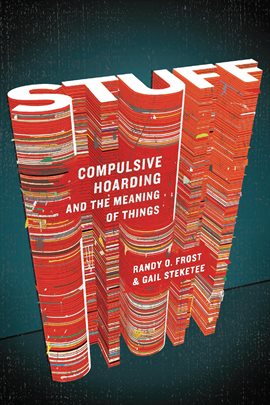
Stuff
Compulsive Hoarding and the Meaning of Things
Randy O. Frost, Gail Steketee
Two psychologists analyze the sources of compulsive hoarding behaviors, presenting case studies of sufferers who have rendered their homes virtually unlivable, and outlines typical ineffective treatments and the impact of the disorder on families.
PTSD
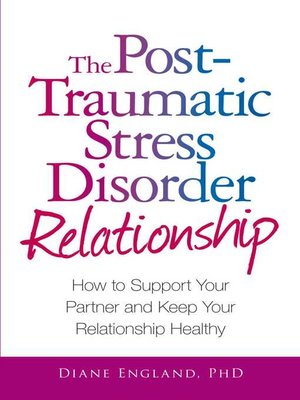
The Post Traumatic Stress Disorder Relationship
How to Support Your Partner and Keep Your Relationship Healthy
Diane England
Citing a prevalence in PTSD in America, a guide for partners of PTSD sufferers shares practical counsel on such topics as managing a loved one’s emotions, communicating while separated by military duty, and handling post-trauma sexual relations.
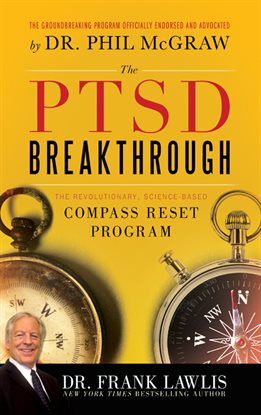
The PTSD Breakthrough
The Revolutionary, Science-Based Compass Reset Program
Frank Lawlis
Presents the latest research on the treatment of post traumatic stress disorder, discussing the psychological and biological components of the disorder and recommending a six-step process of healing.
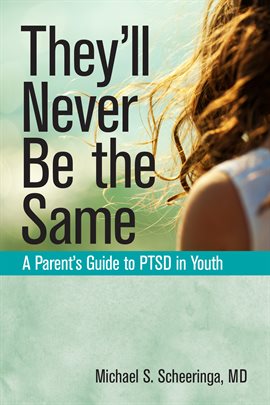
They’ll Never Be the Same
A Parent’s Guide to PTSD in Youth
Michael S. Scheeringa
An award-winning research psychiatrist exposes myths about childhood trauma and PTSD and provides common sense, evidence based solutions.
Thriving After Trauma
Stories of Living and Healing
Shari Botwin
Thriving After Trauma offers insight into overcoming trauma related to an array of circumstances including physical and sexual abuse, war-related injury, loss due to accident or illness, and natural disasters. Tips, tools, and personal stories shed light on how to let go of the shame, guilt, anger and despair after experiencing trauma.
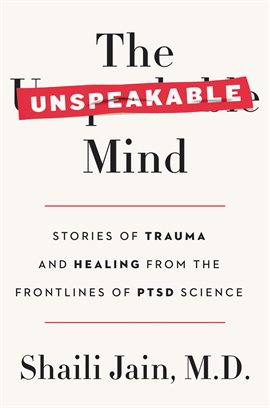
The Unspeakable Mind
Stories of Trauma and Healing From the Frontlines of PTSD Science
Shaili Jain
A Stanford professor and Post-traumatic Stress Disorder specialist presents an informative assessment of PTSD that examines the current scientific research and clinical advances that are shaping how the disorder is understood and treated.
Depression
Hello I Want to Die Please Fix Me
Depression in the First Person
Anna Mehler Paperny
Award-winning journalist Anna Mehler Paperny’s stunning memoir chronicles with courageous honesty and uncommon eloquence her experience of depression and her quest to explore what we know and don’t know about this disease that afflicts almost a fifth of the population—providing an invaluable guide to a system struggling to find solutions. As fascinating as it is heartrending, as outrageously funny as it is serious, it is a must-read for anyone impacted by depression—and that’s pretty much everybody.
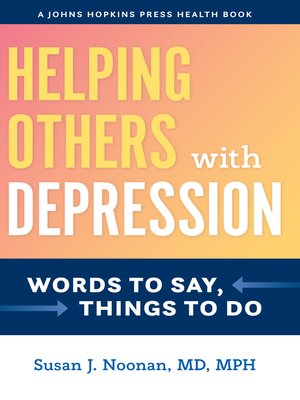
Helping Others With Depression
Words to Say, Things to Do
Susan J. Noonan
A comprehensive guide to how family members and friends can help someone who has depression.
The Hilarious World of Depression
John Moe
For years John Moe, critically-acclaimed public radio personality and host of The Hilarious World of Depression podcast, struggled with depression; it plagued his family and claimed the life of his brother in 2007. As Moe came to terms with his own illness, he began to see similar patterns of behavior and coping mechanisms surfacing in conversations with others, including high-profile comedians who’d struggled with the disease. Moe saw that there was tremendous comfort and community in open dialogue about these shared experiences and that humor had a unique power.
How to Weep in Public
Feeble Offerings on Depression From One Who Knows
Jacqueline Novak
In her hilarious memoir-meets-guide-to-life, comedian (and depressed person) Jacqueline Novak reveals depression’s hidden pleasures, advises readers on how to make most of a cat hair-covered life, and helps them summon the strength to shed that bathrobe and face the world. Both a tongue-in-cheek advice guide (from a person who has no business giving advice to anyone!) and one woman’s breathless journey to consistently put on pants, or at least get out of bed in the morning.
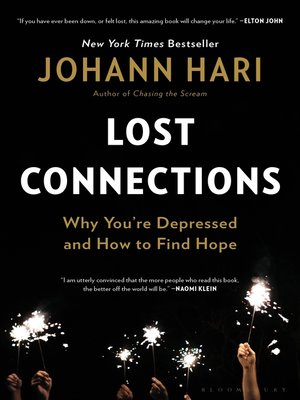
Lost Connections
Uncovering the Real Causes of Depression—and the Unexpected Solutions
Johann Hari
Outlines arguments against common misperceptions about depression and anxiety, drawing on the work of social scientists who believe that the disorders are less related to brain chemical imbalances than to stressful factors in how people live today.
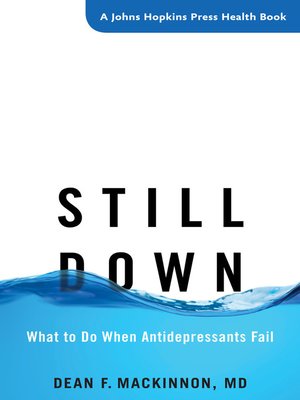
Still Down
What to Do When Antidepressants Fail
Dean F. MacKinnon
By identifying aspects of the individual’s qualities, behaviors, and experiences that may account for poor response to treatment, Still Down points the way for people with TRD and their families to find appropriate diagnoses and the best possible care.
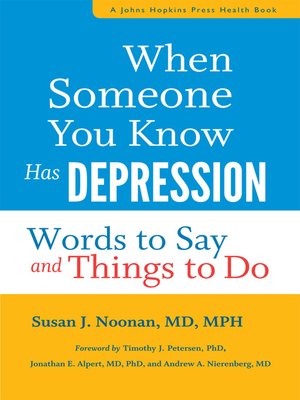
When Someone You Know Has Depression
Words to Say and Things to Do
Susan J. Noonan
What family members and friends can say and do to help someone who has depression.
You Will Get Through This Night
Daniel Howell
A practical guide to taking control of your mental health from the perspective of someone who has been through it all—this no-nonsense book gives you the tools to understand your mind so you can be in control and really live. Split into three chapters for each stage of the journey: this night, tomorrow, and the days after. You will laugh and learn—but most of all, this book will assure you that even in your darkest times, there is always hope. You will get through this night.
Bipolar Disorder
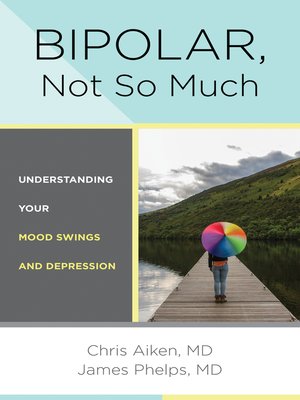
Bipolar, Not So Much
Understanding Your Mood Swings and Depression
Chris Aiken, James Phelps
Explains how the concept of depression is being reexamined and better understood and helps readers determine what kind of depression they have and understand the treatments currently available.
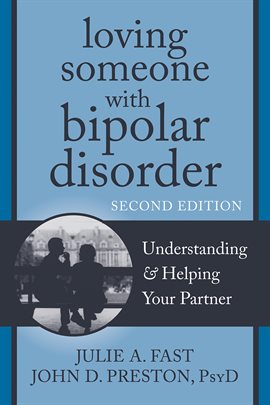
Loving Someone With Bipolar Disorder
Understanding & Helping Your Partner
Julie A. Fast, John D. Preston
Presents advice for partners in a relationship with someone suffering from bipolar disorder, discussing such topics as dealing with manic episodes, recognizing triggers, managing impulsive behaviors, and setting boundaries.
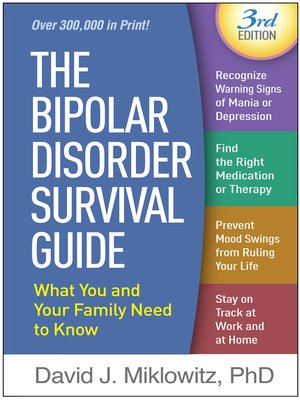
The Bipolar Disorder Survival Guide
What You and Your Family Need to Know
David J. Miklowitz
Offers straight talk, true stories, and proven strategies that can help achieve greater balance and free oneself from out-of-control moods.
Schizophrenia
100 Questions & Answers About Schizophrenia
Painful Minds
Lynn Eleanor DeLisi
Schizophrenia is a chronic, severe mental illness that can be devastating for patients and their loved ones. Whether you are a newly diagnosed patient or a relative of someone suffering from this condition, this book offers help.
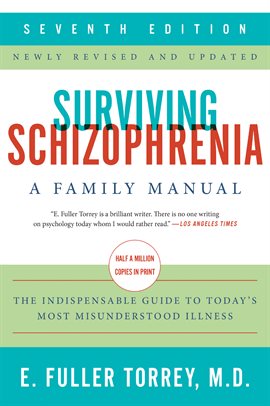
Surviving Schizophrenia
A Family Manual
E. Fuller Torrey
Describes the symptoms, causes, and treatment of schizophrenia, tells those concerned how to take care of a schizophrenic, and discusses legal and ethical problems related to the mental illness.
Holistic Mental Health
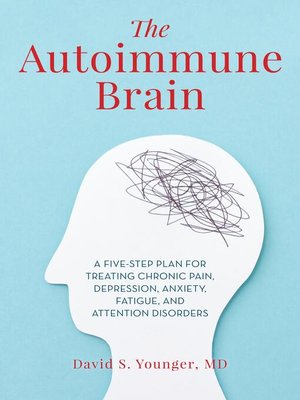
The Autoimmune Brain
A Five-Step Plan for Treating Chronic Pain, Depression, Anxiety, Fatigue, and Attention Disorders
David S. Younger
The connection between the autoimmune system and brain health is now well-established. But attending to that connection to achieve better brain and overall health outcomes can be a challenge. Here, Dr. David Younger explains how seemingly unrelated diseases are linked to autoimmunity and can be treated by following an immune-enhancing program.
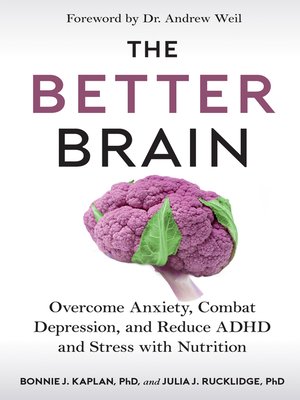
The Better Brain
Overcome Anxiety, Combat Depression, and Reduce ADHD and Stress With Nutrition
Bonnie J. Kaplan, Julia J. Rucklidge
Two leading scientists draw on original, groundbreaking research to outline approaches to treating common mental illnesses with nutrition, sharing insights into the role of minerals and vitamins in brain health while providing more than 30 mood-bolstering recipes.
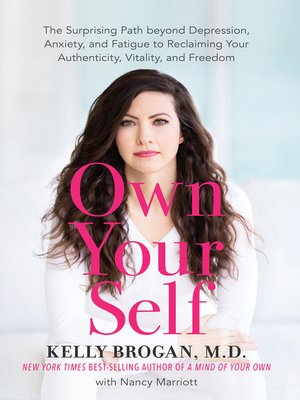
Own Your Self
The Surprising Path Beyond Depression, Anxiety, and Fatigue to Reclaiming Your Authenticity, Vitality, and Freedom
Kelly Brogan
A New York Times best-selling author presents a radical alternative to psychotropic meds: discerning the meaning in your symptoms and your struggle as a way to reclaim your health and your self.
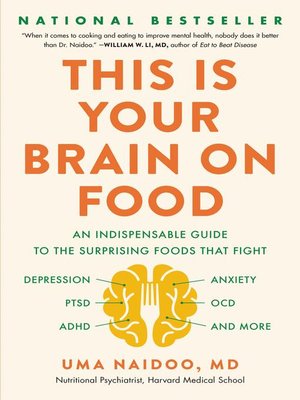
This is Your Brain on Food
An Indispensable Guide to the Surprising Foods That Fight Depression, Anxiety, PTSD, OCD, ADHD, and More
Uma Naidoo
A Harvard-trained psychiatrist, Cornell nutrition specialist and professional chef shares actionable dietary recommendations and brain-healthy recipes for foods that can support the treatments of common psychological and cognitive health challenges, from anxiety to sleep disorders.
